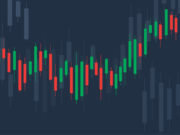The right stocks can make you rich and change your life.
The wrong stocks, though… They can do a whole lot more than just “underperform.” If only! They can eviscerate your wealth, bleeding out your hard-won profits.
They’re pure portfolio poison.
Surprisingly, not many investors want to talk about this. You certainly don’t hear about the danger in the mainstream media – until it’s too late.
That’s not to suggest they’re obscure companies – some of the “toxic stocks” I’m going to name for you are in fact regularly in the headlines for other reasons, often in glowing terms.
I’m going to run down the list and give you the chance to learn the names of three companies I think everyone should own instead.
But first, if you own any or all of these “toxic stocks,” sell them today…
DoorDash (NASDAQ: DASH)
DoorDash has been a key player in the delivery industry, a sector that saw a significant demand surge during the pandemic. However, despite increasing revenues, the company continues to operate without turning a profit—a trend that investors find increasingly concerning.
Profitability Challenges: DoorDash’s persistent inability to achieve profitability, even as its revenues climb year-over-year, highlights a fundamental issue with its business model. Rising delivery costs have not been offset by its revenue growth, indicating a severe margin control problem.
Economic Headwinds: The broader economic landscape of high inflation and rising interest rates adds another layer of difficulty for DoorDash. These factors could tighten consumer spending and increase operational costs, further straining DoorDash’s efforts to become profitable.
Upcoming Earnings Report: Investors should mark their calendars for the company’s early May earnings report. This will be a crucial time for DoorDash to demonstrate potential for near-term profitability. Failure to provide positive assurances might lead to a sharp decline in its stock price.
Royalty Pharma (NASDAQ: RPRX)
Royalty Pharma has made its mark by investing in biopharmaceutical royalties. Although the company shows promise with some solid financial figures, a deeper dive into its balance sheet and strategic decisions reveals significant risks that can’t be ignored.
Debt Concerns: Despite having $1.23 billion in cash reserves, Royalty Pharma is weighed down by a substantial $6.14 billion in debt. This imbalance has left them with a troubling net cash position of -$4.90 billion, or -$10.97 per share. Last year alone, interest expenses gobbled up about 16% of its pre-tax income, indicating a heavy financial burden.
Share Dilution: In an alarming trend, the number of outstanding shares has surged by 37.66% year-over-year to 446.69 million. With a scant 3.8% held by insiders, the majority is controlled by institutions, suggesting potential misalignment with minority shareholders’ interests. The company’s preference for share dilution over additional debt raises concerns about its commitment to shareholder value.
Market Performance: Over the past year, the dilution has led to a nearly 40% decrease in share value, compounded by a market drop of 19.38% in the same period. This stark decline underscores the stock’s volatility and increasing risk.
AppTech Payments (NASDAQ: APCX)
AppTech Payments stands out as an anomaly among fintech disruptors, which typically showcase strong margin profiles early in their growth phases. Unfortunately, APCX tells a different story, marked by financial instability and ongoing losses.
Financial Struggles: The company has reported four consecutive quarters of increasing losses, with less than $1.3 million in cash remaining. This scenario suggests a looming risk of dilution or outright insolvency unless there’s a significant turnaround.
Revenue vs. Losses: While there’s a glimmer of positive news with double-digit revenue growth in Q4 and a slight narrowing of annual losses on an adjusted EBITDA basis, the core issue remains. AppTech’s quarterly losses still far exceed its revenue, highlighting an unsustainable financial trajectory.
Growth and Viability Concerns: For a microcap fintech firm, rapid growth and high margins are crucial for survival. Despite some revenue increases, AppTech’s current operational scale and financial runway don’t support the required growth pace without further cash injections.
Outlook: Although an unlikely financial recovery could be on the horizon, AppTech’s recent performance and historical trends suggest it might not stabilize in time to avoid additional, potentially dilutive funding measures.











